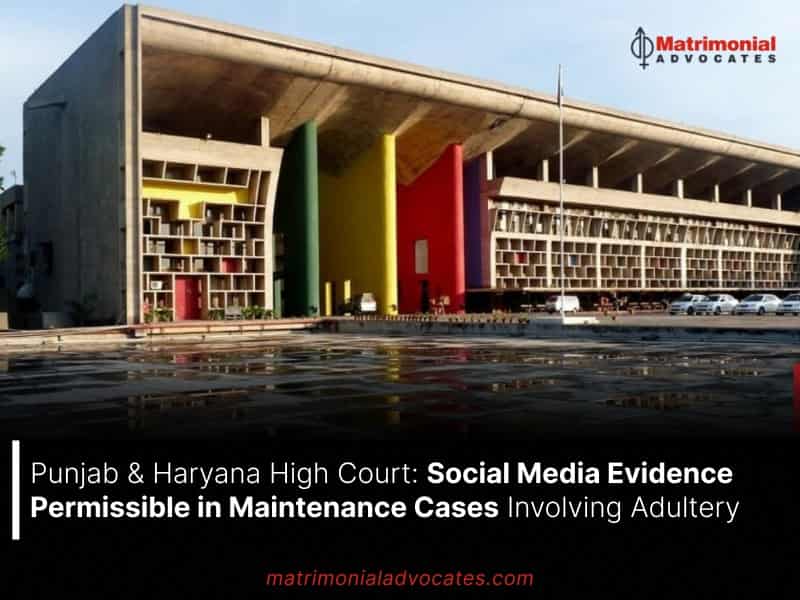
The Punjab and Haryana High Court has established an important precedent by ruling that social media evidence can be considered in assessing adultery claims during interim maintenance proceedings.
Justice Sumeet Goel stated that family courts are empowered to evaluate any pertinent evidence, including digital content from platforms such as Facebook, Twitter, Instagram, and WhatsApp. “Social media evidence presented by the husband to substantiate the wife’s adultery is relevant in deciding interim maintenance and litigation expenses,” remarked Justice Goel.
The ruling was made irrespective of whether such evidence strictly aligns with the Indian Evidence Act or Bharatiya Sakshya Adhiniyam, signaling an adaptation to the changing standards of legal proof.
The case concerned a husband’s revision petition challenging a family court order that directed him to pay ₹3,000 per month as interim maintenance and a one-time litigation fee of ₹10,000 to his wife. His legal team submitted photographs and other digital material to demonstrate the wife’s alleged involvement with another man, contesting her entitlement to maintenance.
Conversely, the wife’s counsel contended that adultery accusations should not impact decisions at the interim maintenance stage and raised doubts about the authenticity of the husband’s evidence.
Justice Goel’s judgment highlighted the necessity for the judiciary to adapt to technological advancements, permitting courts to consider digital footprints as legitimate evidence.
“The reality of our current social engagements through digital platforms allows such material to be used effectively in court proceedings,” he added.
After reviewing the submissions, the court concluded that the evidence sufficiently indicated a relationship between the wife and another individual. Coupled with her admission of living with the man, the court ruled her ineligible for the requested financial support.





